Moving is hell, but I'm in Buy Nothing heaven
We've moved to the other side of Austin, and I brought the gift economy with me.
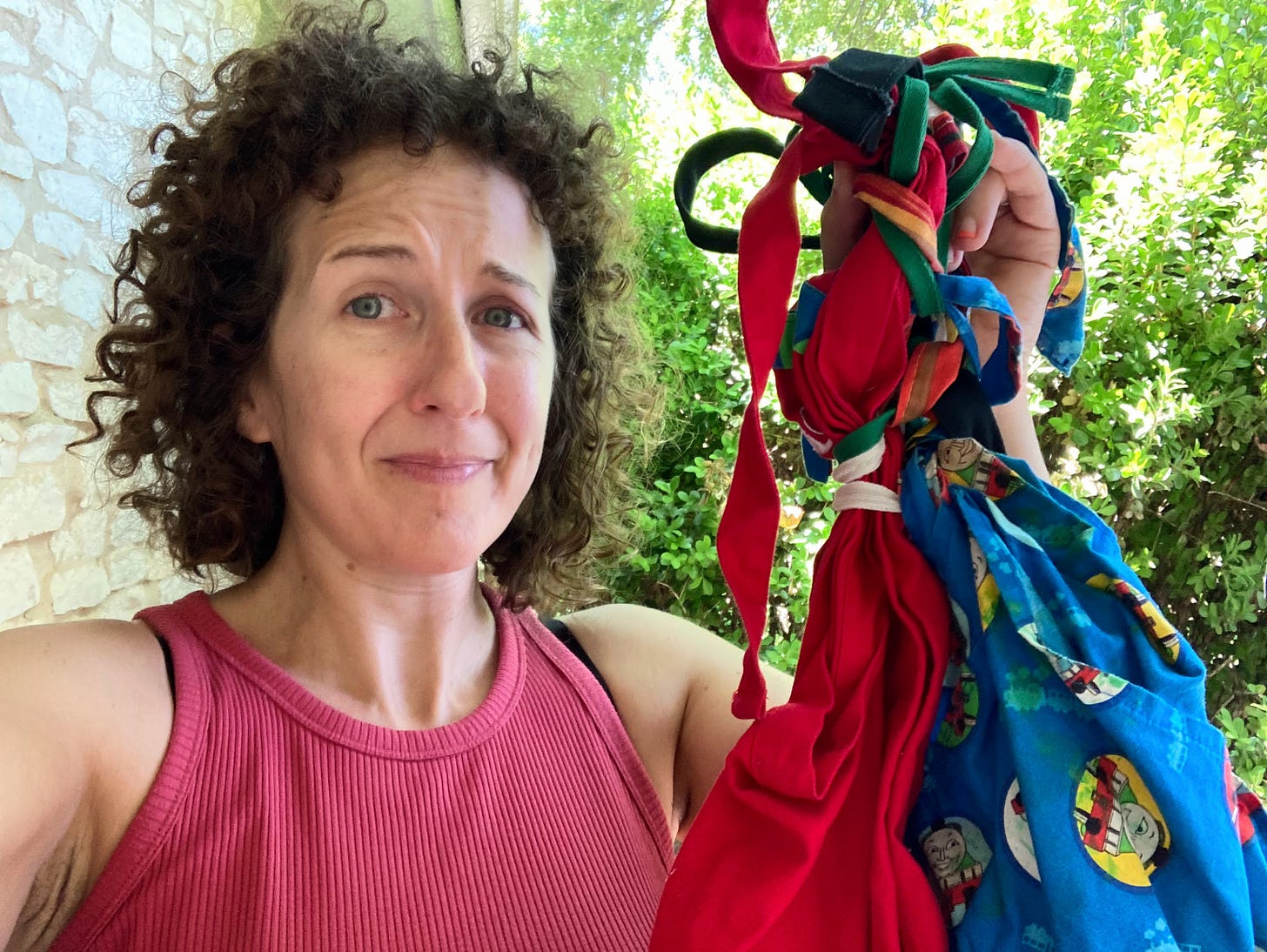
Hi, friends!
It’s a searing hot Sunday afternoon in Austin, and I’m taking a break from moving to write about moving.
We’ve been in the thick of a long-anticipated move to North Austin, where we are now making our home with Frank.
The boys have been in good spirits, despite all the changes. And so have their parents. Mostly.
I have added an extra layer of difficulty by incorporating Buy Nothing into the process. Instead of taking loads of unwanted clothes, dishes, art or even pantry staples, I’m giving them away on my local Facebook group dedicated to what is called the gift economy.
The concept of giving things away to your neighbors has been around much longer than the concept of money, but in 2013, some friends in Washington State started what they called a Buy Nothing group on Facebook.
Built on those sacred principles of generosity and reciprocity, Buy Nothing has become a global phenomenon with more than 7,000 groups in 44 countries — most of which are organized via Facebook. That’s pretty amazing for an organization with no paid staff and an app.
I discovered Buy Nothing at the end of 2020, when I wrote about how the pandemic led to a surge of interest in the Austin groups, where individuals share and ask for everything from everyday household items to once-in-a-lifetime stuff, like wedding decorations and felt boards to announce your new baby’s due date.
I’ve become something of a broken record about the virtues of Buy Nothing. When people ask where I got those cool fringe boots or that fuzzy sheepskin pullover, I reply “Buy Nothing.” (They often think I’m talking about a brand called Buy Nothing. Oh, the irony.)
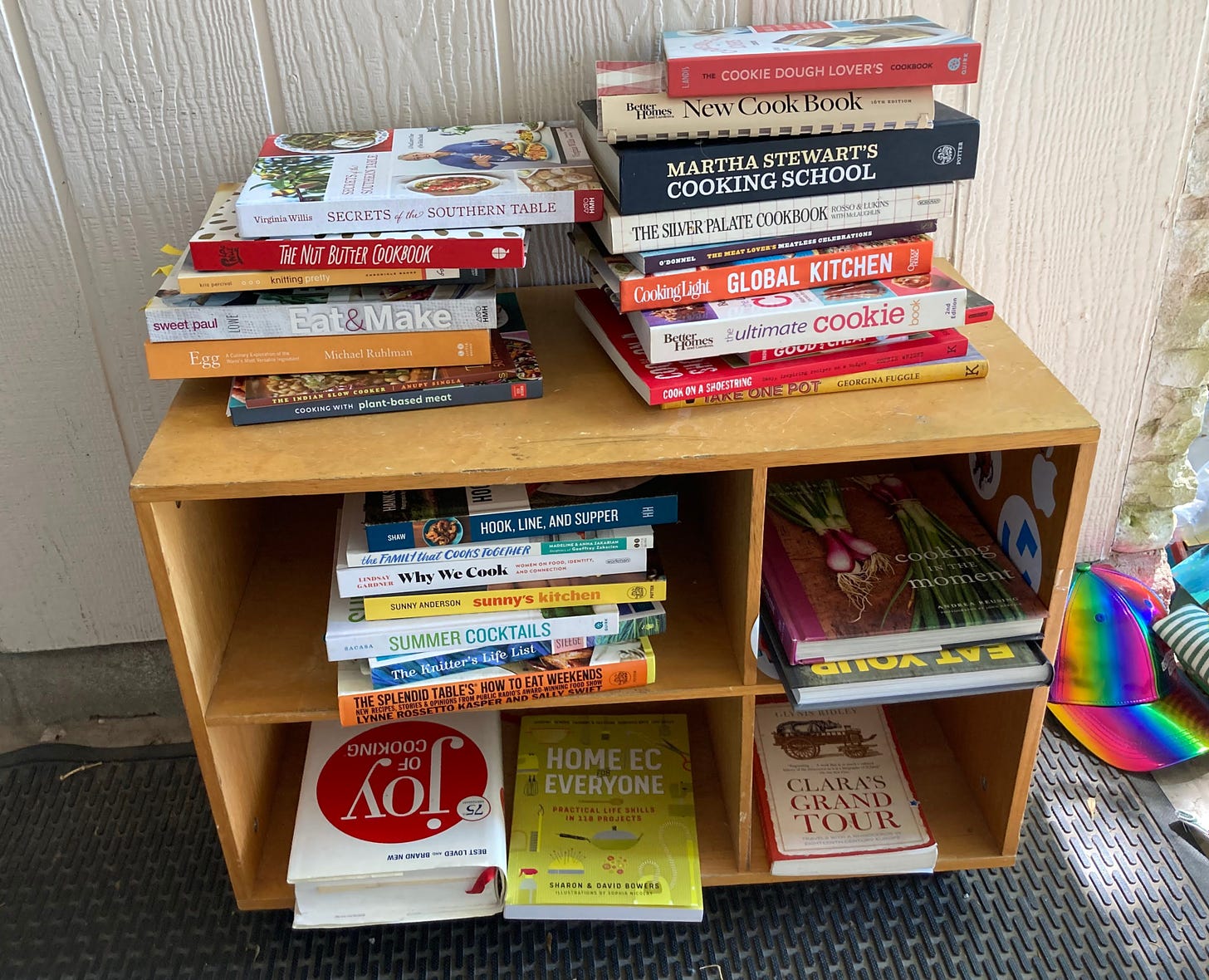
That idea isn’t that Buy Nothing people don’t buy anything. It’s that we choose to participate in a gift economy over a capitalistic one whenever we can.
From the Buy Nothing website:
“The act of giving a gift builds ‘social capital,’ or ‘the productive social relationships in any community that make up the true web of mutual bonds.’ … The market economy has shaped our psyche, and indeed our behavior, for so long we’ve lost the lessons learned from the gift economy. As communities grow larger and more urban, those bonds no longer feel necessary for survival or even for currency, and the monetary system becomes the currency.
“The social capital that serves a valuable purpose is eclipsed by financial capital.
“Accumulating more money and using it to buy items or services separates us from our neighbors. Our relationships have become strained as money is used as the primary strength of our economy.”
Over the past month, I’ve given away dozens of items in the Buy Nothing groups of both my old neighborhood and my new one. Every few days, I’ll post 10 to 12 things I’ve come across that need a new home.
As people from the group message me to say they are interested in the items, I put them on the front porch for these neighbors — most of whom I’ve never met, but I interact with regularly in the group — to pick up over the next few days.
The social capital that the Buy Nothing founders talks about leads to an eerie sense of trust. The same trust I remember feeling when Twitter first started. I never understood the phenomenon until I came across this explanation in Braiding Sweetgrass, a beautiful book about indigenous science by Robin Wall Kimmerer:
“From the viewpoint of a private property economy, the ‘gift’ is deemed to be ‘free’ because we obtain it free of charge, at no cost. But in the gift economy, gifts are not free. The essence of the gift is that it creates a set of relationships. The currency of a gift economy is, at its root, reciprocity. In Western thinking, private land is understood to be ‘a bundle of rights,’ whereas in a gift economy property has a ‘bunch of responsibilities’ attached.”
All of this reminds me of The Austin Chronicle’s catchphrase: Free, but not cheap.
Because all this Buy Nothing activity is work. It takes time to clean and organize all those gives and post photos of them online and coordinate with neighbors about pickup. Over these past few weeks, I’ve easily spent a couple of hours a week working on Buy Nothing stuff.
But this labor is part of the gift.
“It is human perception that makes the world a gift,” Kimmerer writes. “When we view the world this way, (the gift) and humans alike are transformed.”
In Braiding Sweetgrass, she argues that building relationships on gratitude and reciprocity creates a stronger evolutionary fitness for both plants and animals. People who treat the world (and their neighbors) “with respect and reciprocity will surely pass on genes to ensuing generations with a higher frequency than the people who destroy it.”
Did I get this communal gene from my parents or was it nurtured into me? Are my kids going to think differently about stuff because of how Buy Nothing changed how I think about stuff?
As I write this, I’m surrounded by boxes of CDs that need sorting, a table of cables that need untangling and about a dozen Buy Nothing gives in process, including blocks of mushrooms from Central Texas Mycological Society, a table lamp, books that didn’t make the cut for the new house, and my old robe.
It’s going to take another couple of weeks for this move to feel even remotely close to finished, but even while I’m in the middle of it, I’m glad I’ve taken the time to do all this gift economy work.
I’m a year and a half into my experience with Buy Nothing, so I can’t say for sure if this is an ephemeral season or an evolutionary shift, but my gut tells me this introduction to the gift economy is changing my life at a fundamental level because it is helping me shift away from a scarcity mentality that has plagued my family since, well, before anyone can remember.
Because in the gift economy, there is always enough.
As the great gift economy researcher Lewis Hyde says:
“Objects will remain plentiful because they are treated as gifts.”
I hope everyone is staying cool as we head toward the summer solstice! I will be relieved when this moving chaos is over, but the only way out is through, so we’ll keep chipping away at it.
Thanks so much for your Substack support! We’re now almost 18 months into this independent journalism experience, and your subscriptions are what make this column possible. To each and every one of you: Thank you!
Until next time,
Addie
P.S. If you like what I’m doing, forward this to a friend! I’m always trying to spread the word about what this newsletter is and why people who loved my work at the Statesman might be interested in subscribing.
P.P.S. Look for a feature story from me in the upcoming issue of Texas Power Co-op! I’m excited to share my first piece for that magazine soon.



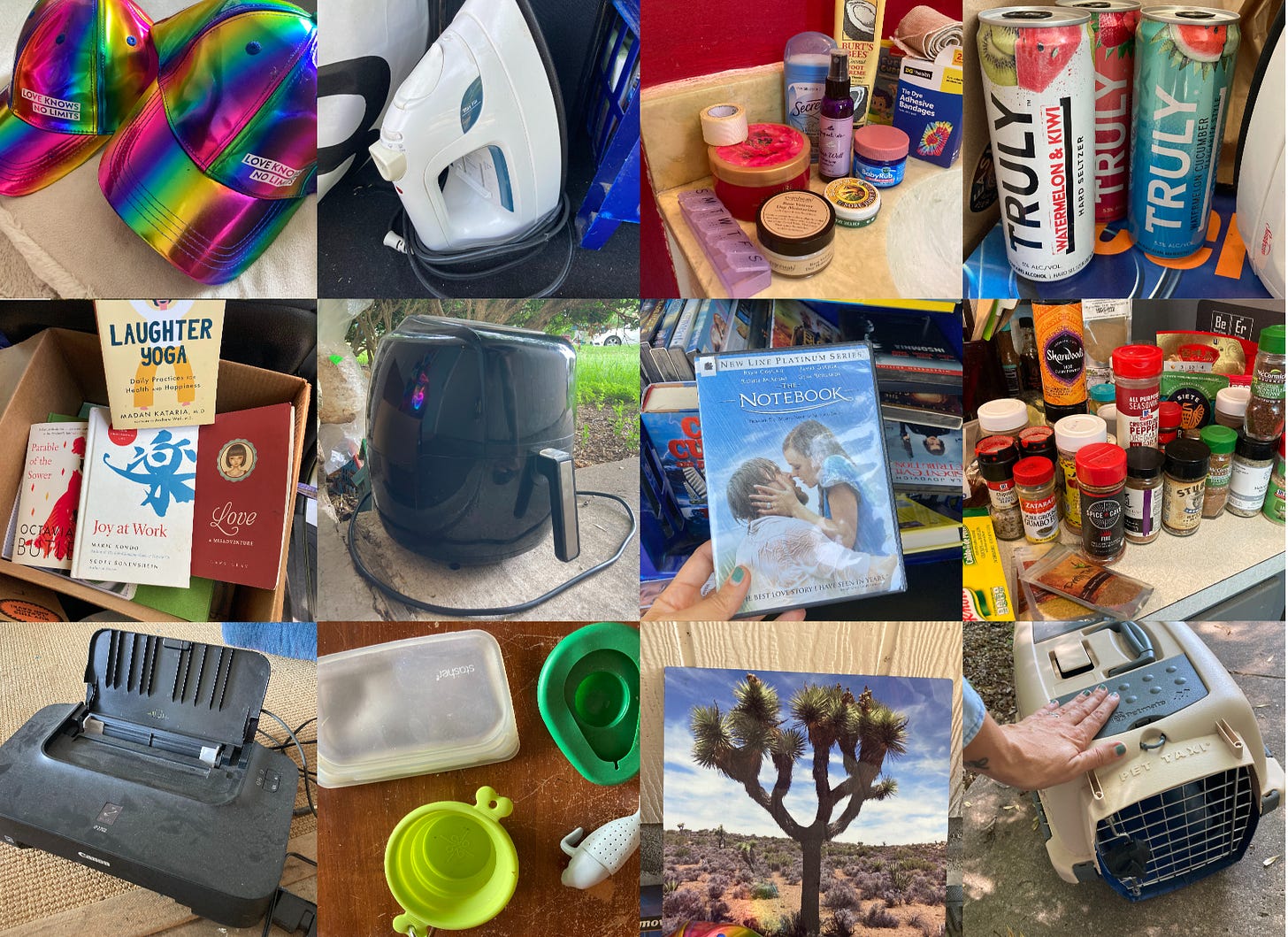
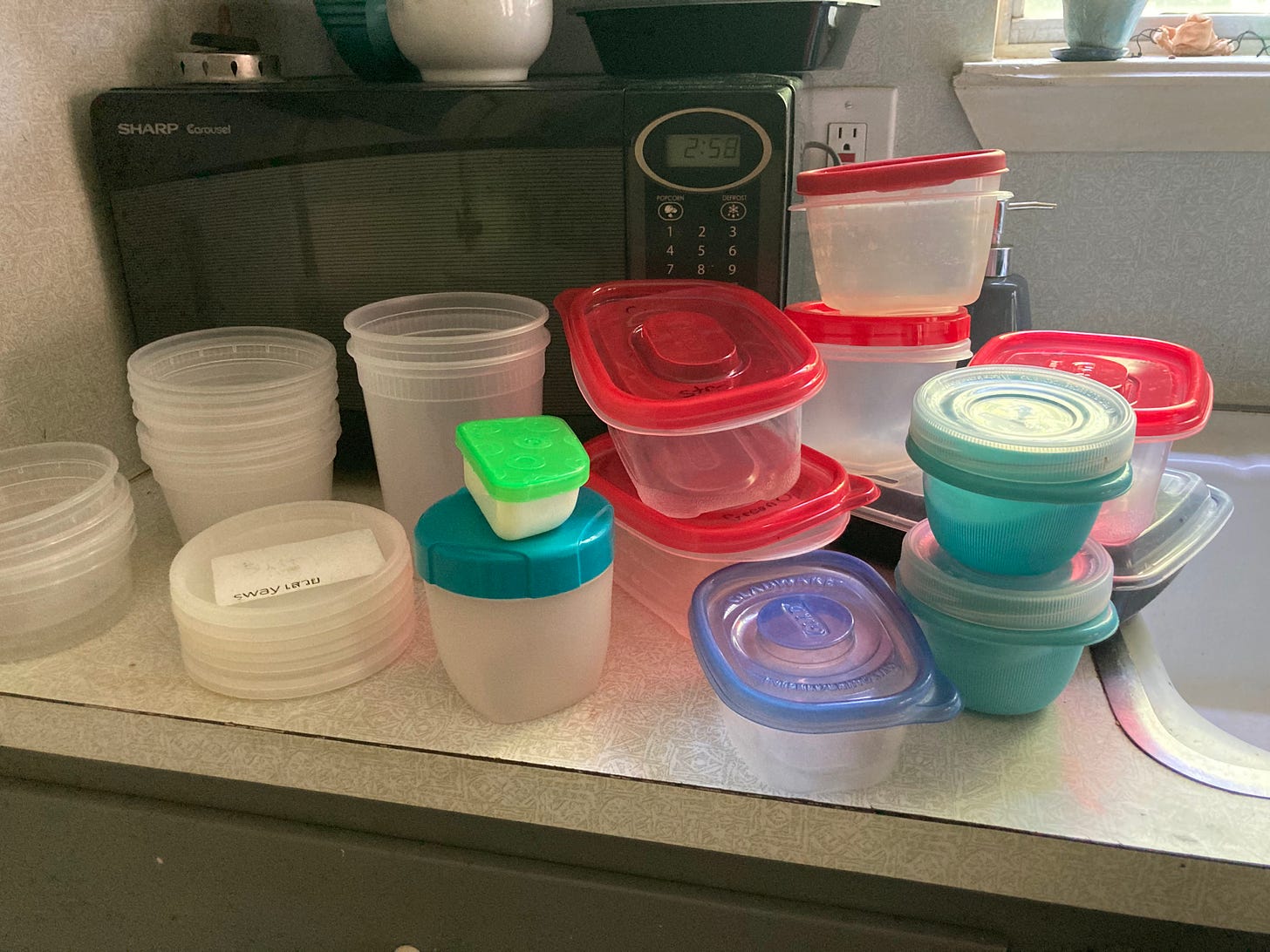
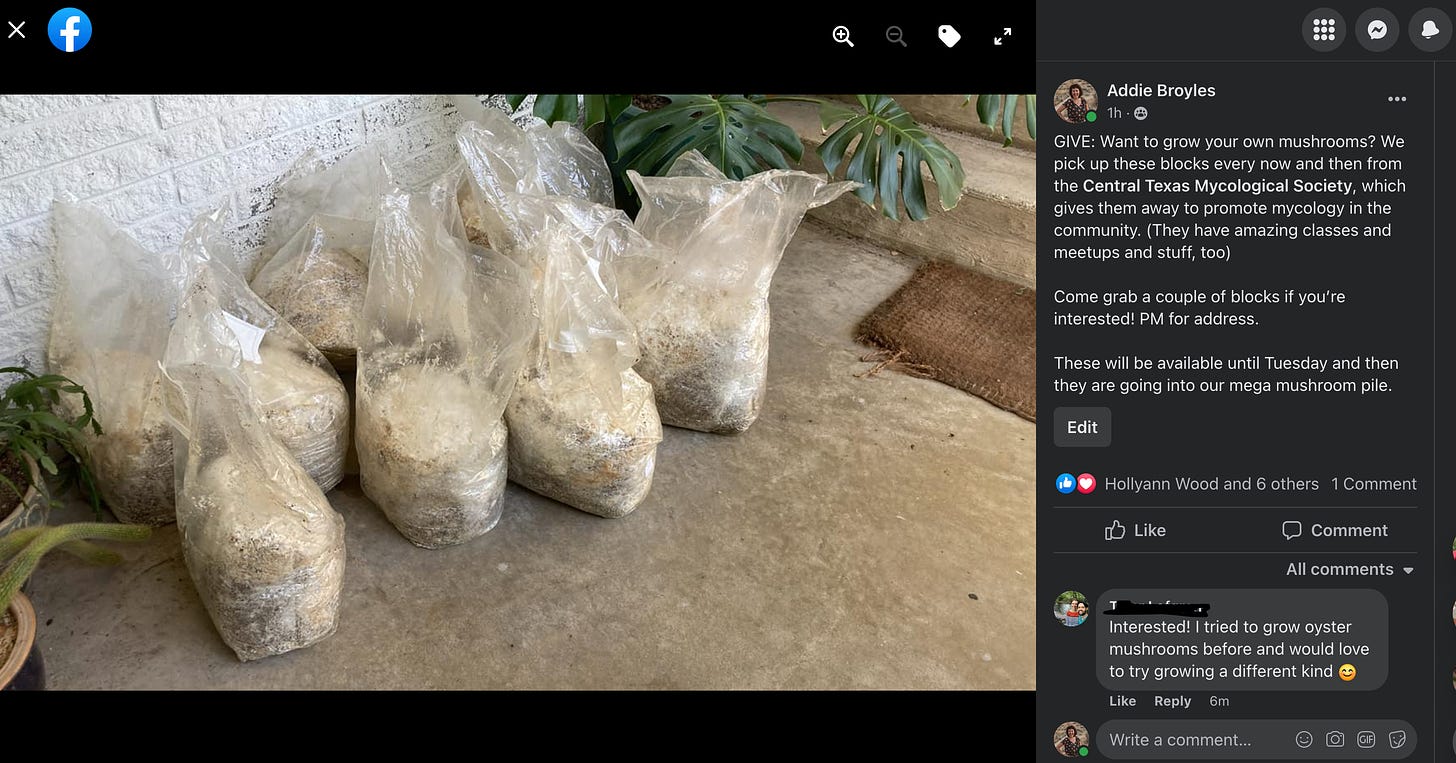
I can hear the sweet calming voice of Kimmerer saying "reciprocity". I love this piece and the real world experience you share that illustrates the tenets of Robin Kimmerer's beautiful book.
much love dear one:)
Yes! Buy Nothing has come with so many added gifts, especially in terms of binding our neighborhood more closely together. It's a constant reminder that we are all mostly good people who want to do good things.